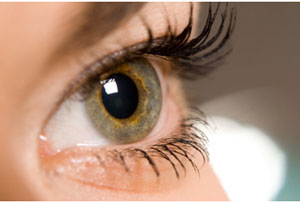Dry eye syndrome occurs when eyes cannot produce enough tears to lubricate the eyes. The production of tears may not be adequate due to many factors.
What is Dry Eye Syndrome?
Dry eye syndrome happens when there is imbalance in the production tears. The tears are composed of water, mucus, antibodies and proteins. Generally, tears are needed by the eyes for lubrication and added moisture that are needed in maintaining clear vision.
Dry eyes are normally treated with several kinds of eye drops and some lifestyle modification. Severe dry eyes may need surgery.
What are the Causes of Dry Eye Syndrome?
Dry eyes are due to absence of tears or the production of poor quality tears. Eyes normally produce tears to make the surface clear and to protect in against any eye infection. However, some people who cannot produce tears while there are some may produce tears but may not contain all the components of good quality tears.
There are various reasons why a person cannot produce tears. Some of the reasons for dry eye syndrome are:
- People who are 50 years old and above cannot produce enough tears because production of tear glands are reduce as one gets older.
- Hormonal change can also affect the tear production. Dry eyes are very common to those women who are in their postmenopausal stage.
- Health issues may also result to dry eye syndrome. People with rheumatoid arthritis, diabetes, Sjoren’s syndrome and lupus may also experience dry eyes.
- People with vitamin A deficiency may also have poor tears.
- Those who went laser surgery may also have temporary dry eyes.
- People who have eyelid problems may also experience dry eyes.
- Some medicines like anti allergy medicines, antidepressants, and medicines used to treat acne are just some of medications that cause dry eyes.
- Other factors like air and spending long hours in computer may result to dry eyes.
What are the Symptoms of Dry Eye Syndrome?
Some of the symptoms of dry eye syndrome are:
- Burning sensation in the eyes
- Itchiness
- Annoying feeling that there is sand in the eyes
- Redness of the eyes
- Blurred vision
- Sensitive to light
There are times that a person with dry eye syndrome experience flowing tears in the eyes but this type of tears are not good tears as they do not have the complete components that will lubricate the eyes. This should not be confused to good tears, this is just a signal of the eyes to the nervous system that the eyes is asking for lubrication.
What are the Treatments for Dry Eye Syndrome?
Some of the treatments for dry eye syndrome may include:
1. Antibiotic medications
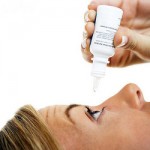 Antibiotic eye drops are given to treat any irritation and soreness that are caused by the dry eyes. Antibiotic for the eyes are available in pills, eye drops or ointment.
Antibiotic eye drops are given to treat any irritation and soreness that are caused by the dry eyes. Antibiotic for the eyes are available in pills, eye drops or ointment.
2. Artificial tears
 Artificial tears are normally given to those people who wear contact lens and experience dry eyes. This usually gives temporary relief but may not cure dry eyes.
Artificial tears are normally given to those people who wear contact lens and experience dry eyes. This usually gives temporary relief but may not cure dry eyes.
3. Eye drops
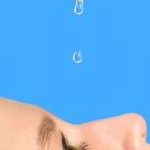 For those who have mild cases may take eye drops. Non-preservative eye drops is a common choice than a preservative eye drops because preservative eye drops may dry the eyes when used for long.
For those who have mild cases may take eye drops. Non-preservative eye drops is a common choice than a preservative eye drops because preservative eye drops may dry the eyes when used for long.
4. Eye plugs
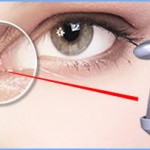 Eye plugs are made of silicone. The plugs are inserted in the surface of the eyes to conserve the tears.
Eye plugs are made of silicone. The plugs are inserted in the surface of the eyes to conserve the tears.
5. Special Contact lens for dry eyes
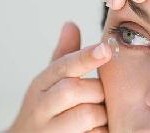 Ordinary contact lens is not advisable for those who have dry eyes as they may irritate further the surface of the eyes. However, special contact lenses are recommended for dry eyes. The special contact lens works as bandage lenses that protect the eyes.
Ordinary contact lens is not advisable for those who have dry eyes as they may irritate further the surface of the eyes. However, special contact lenses are recommended for dry eyes. The special contact lens works as bandage lenses that protect the eyes.
6. Warm washcloth
 Warm washcloth is recommended for dry eyes. This can be done every night before you sleep to relax the eyes.
Warm washcloth is recommended for dry eyes. This can be done every night before you sleep to relax the eyes.
7. Take Omega 3 fatty acids
 Â Take foods rich in omega 3 fatty acids. This type of acids is normally found in fish and they are highly recommended to lessen the swelling of eye glands. Foods rich in omega 3 fatty acids are tuna, sardines, canola oil, soybean oil and nuts.
 Take foods rich in omega 3 fatty acids. This type of acids is normally found in fish and they are highly recommended to lessen the swelling of eye glands. Foods rich in omega 3 fatty acids are tuna, sardines, canola oil, soybean oil and nuts.
8. Surgery
 If dry eyes do not respond to medications, it may result to annoying eye problems that may affect daily activities. To avoid further problems, severe dry eyes may require surgery. In surgery, the ducts are closed to let the tears stay in the eyes. This is normally done with local anesthesia and patient can resume normal activities after the surgery.
If dry eyes do not respond to medications, it may result to annoying eye problems that may affect daily activities. To avoid further problems, severe dry eyes may require surgery. In surgery, the ducts are closed to let the tears stay in the eyes. This is normally done with local anesthesia and patient can resume normal activities after the surgery.
Here are the symptoms and treatments of dry eye syndrome. If you are planning to use eye drops, ask your doctor for specific type of eye drops you may use to avoid further irritation.
